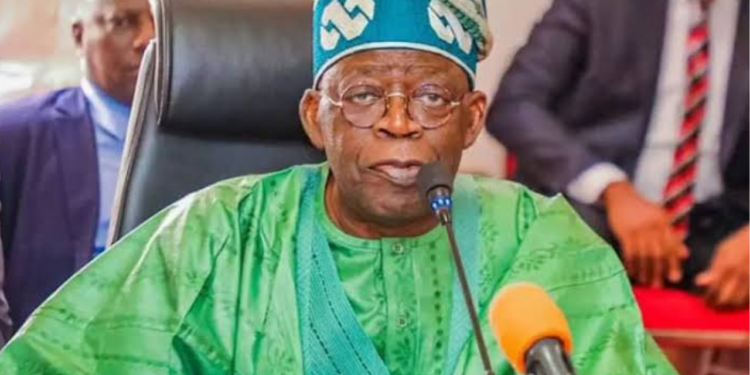May 29, the long-awaited day for the exit of the Muhammadu Buhari administration and the inauguration of the Bola Ahmed Tinubu tenure, is here. The debate as to whether or not the President Muhammadu Buhari-led administration has fulfilled its promises will rage. That administration did try to make a difference in the areas of infrastructure. From the Second Niger bridge to the stretch of railway and road construction projects.
Still, what is certain is that the Bola Tinubu-led administration will inherit a badly shaped economy, a deeply divided country and a quirky security system. The socio-economic realities in today’s Nigeria are far from pleasant. A recent report disclosed that 63,111 have been killed since President Muhammadu Buhari assumed office on May 29, 2015.
Data obtained from the Nigeria Security Tracker (NST), a project of the Council on Foreign Relations’ Africa programme, revealed that the deaths were caused by terrorism, banditry, Herders/farmers clashes, communal crises, cult clashes, and extra-judicial killings among others. But it’s not restricted to Buhari’s administration alone. When President Buhari assumed office on May 29, 2015, the cumulative number of people killed in Nigeria, according to the NST was 34,972. Since then, the death figure has risen to 98,083 as at May 16, 2023.
Although Boko Haram attacks have reduced tremendously, the spree by killer herdsmen has spread across the North, assuming orgy levels in recent days. While killings in most parts of the South have subsided, the South East has yet to have respite, no thanks to the mismanagement of the IPOB agitation.
On the economic front, the tale is no better. Late last year, Nigeria’s Debt Management Office (DMO) disclosed that the next administration will inherit a public debt of N77 trillion if the N23 trillion loans from the Central Bank of Nigeria (CBN) are secured.
The multinational consulting firm, KPMG revealed that the Nigerian unemployment rate rose to 37.7per cent in 2022. It believes the figure will further rise to 40.6 per cent, due to the continuing inflow of job seekers into the job market.
In a newly released report tagged ‘KPMG Global Economy Outlook report, H1 2023,’ it said that unemployment will continue to be a challenge due to the slower-than-required economic growth and the inability of the economy to absorb the 4-5 million new entrants into the Nigerian job market every year.
Recent poverty figures are equally terrible. Poverty Index survey reveals that: 63 per cent of persons living within Nigeria (133 million people) are multidimensionally poor. The National Multidimensional Poverty Index (MPI) is 0.257, indicating that poor people in Nigeria experience just over one-quarter of all possible deprivations.
While 65 per cent of the poor (86 million people) live in the North, 35 per cent (nearly 47 million) live in the South. Poverty levels across states vary significantly, with the incidence of multidimensional poverty ranging from a low of 27 per cent in Ondo to a high of 91 per cent in Sokoto.
With more than half of the population in multidimensional poverty, deprivations are also apparent in sanitation, healthcare, food insecurity and housing. Child poverty is prevalent in rural areas, with almost 90 per cent of rural children experiencing poverty.
The education and health sectors are near skeletal, crippled by incessant strikes. The Academic Staff Union of University (ASUU) had gone on strike for over 610 days since the inception of this administration, the longest period of strike in the country’s democratic era. Similarly, strikes by doctors and other health workers in federal government-run hospitals in Nigeria resulted in the loss of more than 153 working days between 2015 and 2023. Despite a poor ratio of doctors/nurses to patients, disgruntled medical personnel are leaving the country in their numbers.
To be fair, the Buhari administration didn’t inherit paradise. On the contrary, it inherited a country beat down by decades of corruption and injustice. A country where power supply was not just a luxury but a means to rip off citizens despite billions of Naira sunk in the sector.
As Tinubu receives the baton as Nigeria’s 16th head of state and government since 1960 and 5th elected president since 1999, the enormity of the job he is inheriting, we hope, is not lost on him. Although the burden of the election dispute will hover over his head pending the Supreme Court’s verdict, there will be little or no room for excuses. He will be expected to hit the ground running, considering the socio-economic situation on ground.
Fortunately, in our view, he is taking over from a government of the same party; a government he was not only key in bringing to power but was strategically involved in. To assist him, a law is in place to ensure he has his cabinet in place within 60 days. Of course, the first major task is ensuring stability anchored on justice, inclusiveness, merit and fairness. After a heated general election driven by toxic campaigns, Tinubu has to lead the healing process. This is a task he must take on conscientiously. He cannot afford to leave this core task to anyone else. He has to drive a reconciliation process that touches on the needs and aspirations of all well-meaning Nigerians.
The youth disillusionment and rising disbelief in the Nigerian system must be addressed. This has to be done fast and robustly. With a population that seems left out in the cold, the new president must, in keeping with his campaign promises, provide them a warm sense of belonging. Besides creation of jobs, an environment to dream and achieve the best they can should be made available, expeditiously, we dare say.



